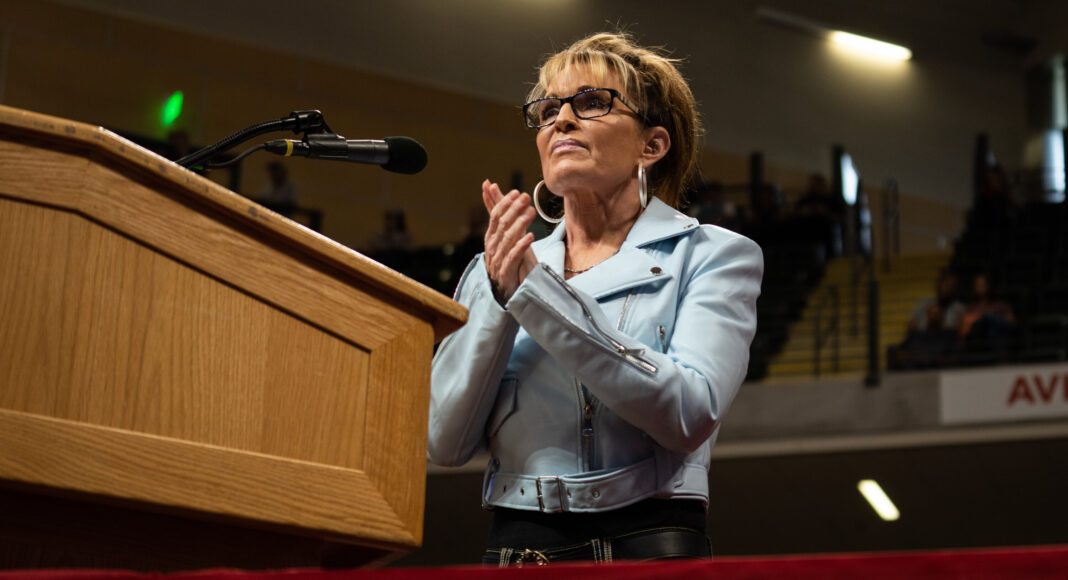The political world experienced an upset last week when Democratic former Alaska House Representative Mary Peltola won a special election for Alaska’s at-large House seat, becoming the first Democrat to do so in 50 years.
This comes as a possible shift in tone in what has been largely anticipated as a strong Republican year for the 2022 Midterm Elections. Democrats are celebrating, while Republicans are likely performing autopsies on what went wrong.
Some point to Sarah Palin’s candidacy as the first problem for Republicans. The former governor and vice presidential candidate has had no shortage of blunders over the years. Her 2011 purchase of a home in Scottsdale, Arizona, led some to believe she had cut ties with the last frontier.
Former President Donald Trump’s endorsement of Palin didn’t seem to do her – or Republicans – any favors. Besides disgraced Palin, the other option was Nick Begich III, a member of the longstanding Begich political dynasty that has permeated Alaska politics for the last half-century. Voters were left with the more electable – albeit, establishment – choice in Begich, or the less palatable Trumpendorsee in Palin.
Voters also decided the election through ranked-choice voting, a system that made its American debut in Maine in 2018 and which was adopted in Alaska under a ballot measure. The idea is simple: instead of voters choosing one candidate, all candidates (regardless of party) appear on the same ballot. Voters can then order their preference for each candidate: first choice, second choice, third choice, etc. If no candidate receives a majority vote, the lowest vote-receiver is eliminated, and his or her votes are distributed to the voters’ second choice candidates.
Proponents of ranked-choice voting insist it offers more choices to the public and can break political molds in electorally inelastic states. Critics state that it dilutes voting power among certain blocs of voters and allows for the possibility of less popular candidates to win an election through the vote distribution. Those who are also concerned about election integrity point to the convoluted mess ranked-choice voting can become, pointing to not only discarding illegitimate votes, but also untangling the path of a voter’s preference with the multitude of options that might be available.
So, what does this mean for the midterm elections? Certainly, it is a brag for Democrats and a possible warning sign for Republicans. Pelota’s win is certainly impressive. While Alaska, a red state in many ways, it is not as monolithically Republican as Idaho, Utah, or Wyoming, for instance. The last Democratic Senator was Mark Begich – again, of the Begich political scion – who lost the election to current incumbent Dan Sullivan (R) in 2014. Democrats also nominally control the State House, but mainly due to how the members caucus with the parties.
Democrats will point to Peltola’s upset as the possible first upper hand they’ve had all year ahead of this November’s elections. Republicans will point to the special nature of the special election and Palin’s candidacy as the reason this was a fluke. Democrats have been overperforming on the electoral front in special elections, a shift with which many are crediting the Supreme Court’s reversal of Roe v. Wade.
Democrats have since overperformed in special elections in Nebraska CD-01, Minnesota CD01, and New York CD-19 and 23. The overperformance margin benefits them, but it’s unclear where exactly the party line will be on Election Day. While Democrats point to gas prices easing and Roe v. Wade being a major turnout issue, it begs the question: will voters take that at face value, and then take it to the polls?
It’s also worth seeing what the turnout game will turn out to be. Democrats might be inspired to vote now, but it’s possible the flame might dissipate come Election Day.





